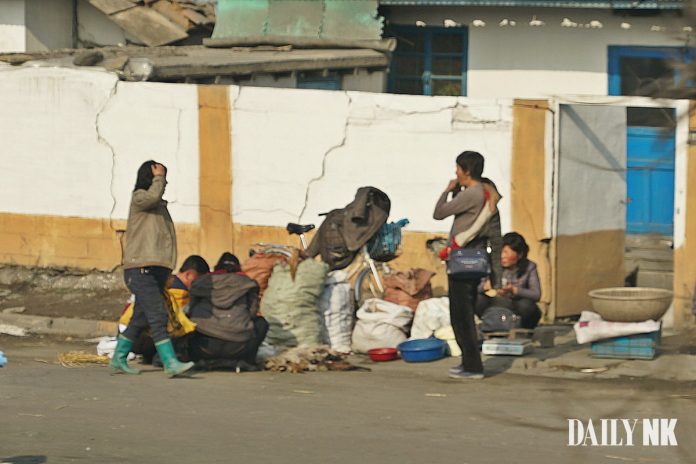
Grain prices in Chongjin and other cities in North Hamgyong Province have been increasing since mid-August, causing rising anxiety over food shortages, a source in North Hamgyong Province told Daily NK on Sept. 4.
In Rabuk Market, located in Chongjin’s Ranam District, a kilogram of rice went for KPW 6,400 on Sept. 1, a 10.3% increase from KPW 5,800 in mid-August.
Similarly, a kilogram of corn went for KPW 3,400 on Sept. 1, a 17.2% increase from KPW 2,900 in mid-August. Meanwhile, a kilogram of flour increased by 6.7% from KPW 7,500 to KPW 8,000 over the same period.
Wheat and barley prices are also on the rise. As of Sept. 1, a kilogram of wheat and barley went for KPW 4,300 and KPW 4,600 in Rabuk Market. The prices of the two commodities increased by 10.3% (KPW 3,900) and 12.2% (KPW 4,100), respectively, since mid-August.
“Food prices increase slightly every September, but they seem to be rising rapidly this year with expectations of poor rice and corn harvests, along with rumors that food prices will continue to rise in the future,” the source said.
State-run shops lack food to sell
The source also reported that state-run grain shops in some areas of Chongjin have not been selling food, only posting large price tags on their exteriors. The inability of consumers to buy food from the stores may be contributing to the rise in food prices, he said.
One state-run food store in the Ranam District of Chongjin, for example, has been closed for over ten days because it does not have any food to sell, the source said.
“The government was saying that it would ensure that food prices are lower [at state-run shops] than in the markets, but that claim has proven just to be a lie,” the source said. “Predicting a further rise in prices, wholesalers with food to sell are refraining from releasing their goods to the market, which has made a rise in food prices inevitable.
“People are anxious because food prices are rising at a time when people are starving because they can’t find enough corn-rice to eat. With the approach of winter, people are really worried about how they’re going to prepare for surviving the winter.”
Translated by Annie Eun Jung Kim. Edited by Robert Lauler.
Daily NK works with a network of sources who live inside North Korea, China and elsewhere. Their identities remain anonymous due to security concerns. More information about Daily NK’s reporting partner network and information gathering activities can be found on our FAQ page here.
Please direct any comments or questions about this article to dailynkenglish@uni-media.net.

















